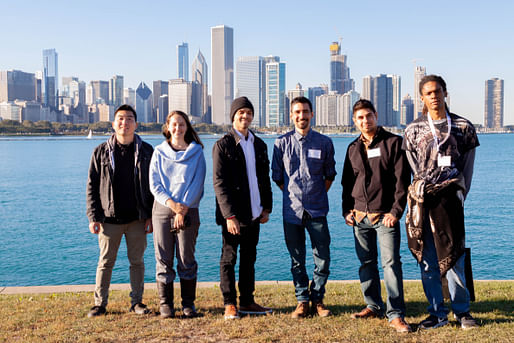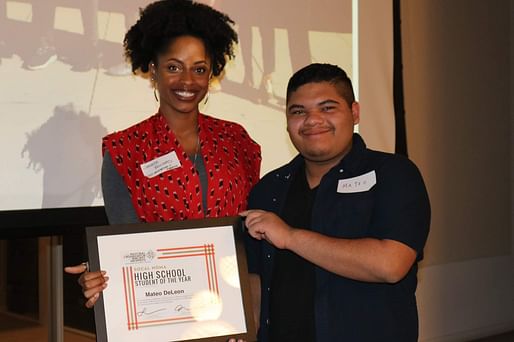

“Advocate” is one of those terms mired with connotative presuppositions. Both noun and verb; the advocate advocates. See what I mean? Many have become self-proclaimed advocates, while few have actually practiced the harder path of advocacy. Advocates proper, by definition, put their money where their mouth is. Currency, that is. Advocates contribute currencies of value: time, money, you get it. And while a press statement of solidarity is great and all, what happens afterward, and perhaps even beforehand, is a useful measure of who is the self-proclaimed advocate and who is the advocate proper.
Woodbury University calls itself an advocate of diversity, equity, and inclusion in architecture. Many schools have called themselves the same. Is Woodbury an advocate proper, or merely a self-proclaimed advocate? The student body provides some interesting insights: While a small percentage of students in the School of Architecture identify as African-American or Black, the socioeconomic background of the remaining remains richly diverse. In the Spring of 2019, 43% of students were Hispanic, 10% Asian, Native Hawaiian or Pacific Islander, and 15% were international students representing 31 countries. Student groups say something too. Both NOMAS and CLEA are bustling within Woodbury SoA’s activity. So far so good. Likewise, the School’s many initiatives are making progress.
A recent development is the newly launched Social Justice Scholarship Fund. It provides scholarships to undergraduate students from underrepresented groups who are committed to eradicating social injustice and ensuring lasting justice for all. This Fall, a total of $70,000 was distributed to 35 students. Advocates advocate for other advocates.
Architecture as a facilitator for good
Jessica Valencia, a new student in Woodbury’s Interior Design program, believes design should be used to serve those in need. “Find your gift and give it away,” she says, reminiscing on her previous years as a student. Jessica has a background in behavioral science and nursing, both fields she felt would give her a way to address the needs of those around her. From the beginning, she wanted to use her skills to serve others. “I just wasn’t passionate about it,” she says about her previous work. The arts and sciences have always been her passion. That’s where design comes in. After ten years of searching, Jessica has finally realized that her calling is design. She wants to use design to enrich the lives of people in need.
Jessica is pursuing a degree in Interior Design with a minor in Structures and hopes to later pursue a Master in Real Estate Development. “Nothing would give me more joy than to see families enjoy affordable housing in a community they are proud to live in,” Jessica shared with me. Her ethos is people-focused; architecture and design is the tool, the vehicle that enables her to serve those people. When asked what she would want to change about the built environment, Jessica’s first response is to develop the city where she was born Sun Valley. She spoke about the poorly maintained streets and how they flood in rainy seasons, or the unfortunate zoning regulations that allow factories to buy and use old homes. There’s even the lack of public park space. The park where Jessica used to play as a child is now an encampment for the homeless, another group she hopes to help in her future.

Early opportunities open new doors
Mateo De Leon just entered his first year of architecture school. He is pursuing a five-year Bachelor of Architecture. Mateo has known for quite some time that he would pursue this path. “Ever since I was introduced to architecture, I have been trying to reach my goals by surrounding myself with people who have a passion for architecture,” the young designer shared. “Leading up to college, I participated in architecture-related programs like SoCal NOMA’s annual Architecture and Engineering Summer Camp, as well as their High School Boot Camp.” Moreover, before Woodbury, Mateo took part in university-level summer programs, including SCI-Arc’s Design Immersion Days and USC’s two-week Summer Exploration of Architecture program.
Early mentorship; this is Mateo’s desire for architecture. He hopes that underrepresented youths will be given the opportunity to experience architecture early on. “Only two percent of all architectural jobs are held by African-Americans, and even less are held by African-American women this is very concerning,” he argues. He’s right. It is concerning. Mateo’s response is to be a part of the change he desires. With his academic goals set high, Mateo has also joined Woodbury’s NOMAS chapter with a mission to help bring a new generation of diverse architects into a predominantly white field.
A new zeitgeist
Jessica and Mateo set an encouraging example for their peers. It is their hope to use their educational journey at Woodbury as an opportunity to elicit change. It is why they became two of the thirty-five recipients of the Social Justice Scholarship their values aligned with the values of their chosen academy. Advocates advocate for other advocates.
At the beginning of this semester, I asked my second-year studio of fifteen students why they decided to pursue architecture. We went around the class and each person shared. You know what roughly ten out of fifteen of them had in common? Each one is pursuing architecture for a humanitarian reason. They want to be advocates for other people. And that is the spirit of the times the zeitgeist. Bob Dylan had it right: For the times they are a-changin'.
My reflections, thoughts, ideas, and observations during my time working and teaching at Woodbury School of Architecture in Burbank, CA.
No Comments
Block this user
Are you sure you want to block this user and hide all related comments throughout the site?
Archinect
This is your first comment on Archinect. Your comment will be visible once approved.